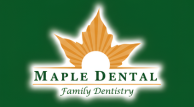How Smoking Affects Your Teeth and Gums: The Truth Revealed
Smoking has wide-reaching effects on nearly every part of the body, and oral health is no exception. As your trusted Hesperia dentist, we want to help you understand the full extent of smoking’s impact on your teeth and gums. Whether you’re considering quitting smoking or looking to prevent future oral health issues, this guide will shed light on the damage smoking can cause to your smile.
The effects of smoking on your teeth and gums

1. Increased risk of gum disease
One of the most significant risks associated with smoking is gum disease, also known as periodontal disease. Smokers are twice as likely to develop gum disease as non-smokers. The chemicals in tobacco impair blood flow to the gums, making it harder for your body to fight off infections. If left untreated, gum disease can lead to tooth loss. Early intervention is crucial for prevention.
2. Discoloration and staining of teeth
Smoking causes visible stains on your teeth due to the nicotine and tar in cigarettes. Over time, these substances cause your teeth to turn yellow or brown. Without professional cleaning, these stains can become permanent, diminishing the beauty of your smile.
3. Bad breath and taste disorders
Persistent bad breath (halitosis) is another common consequence of smoking. Tobacco particles remain in your mouth, throat, and lungs, leading to foul-smelling breath. Additionally, smoking can alter your sense of taste, making food less enjoyable and potentially affecting your diet.
4. Reduced healing capacity
Nicotine constricts blood vessels, reducing the flow of blood throughout the body, including the mouth. This slows down healing after oral surgeries such as tooth extractions, dental implants, or gum treatments. Smokers often face longer recovery times and increased risks of complications after dental procedures.
5. Oral cancer
Smoking is the leading cause of oral cancer. Tobacco use significantly increases your risk of cancers affecting the mouth, throat, and lips. The risk grows with the amount and duration of smoking. Regular dental checkups can help spot early signs of oral cancer, allowing for early intervention and better outcomes.
6. Tooth loss
Smokers are at a higher risk of tooth loss due to the combination of gum disease and reduced blood flow to the gums. Gum disease leads to the deterioration of bone and tissue that support your teeth, ultimately causing them to become loose and fall out.
The impact of smoking on your gums
1. Receding gums
Smoking can cause receding gums by impairing blood flow to your gum tissue. When gums recede, they expose the sensitive roots of your teeth, making them more prone to tooth decay and discomfort.
2. Increased tooth sensitivity
Receding gums can also lead to increased tooth sensitivity. You may notice discomfort when eating hot or cold foods and drinks, making it harder to enjoy your favorite meals.
3. Slower healing after dental procedures
If you’ve undergone any dental work, such as a tooth extraction or gum surgery, smoking can slow the healing process. Smokers often experience longer recovery times and may be more prone to post-surgical complications.
Did you know?
- Smoking and oral cancer: Smoking increases the risk of oral cancers by up to 10 times compared to non-smokers. Early detection through regular dental check-ups can save lives.
- Teeth staining: Smokers are 3 times more likely to experience severe teeth discoloration than non-smokers, even with regular brushing.
- Gum disease risk: Smokers are twice as likely to suffer from gum disease, which can lead to tooth loss if left untreated.
Actionable tips for protecting your teeth and gums
While the damage from smoking is serious, there are steps you can take to protect your oral health and minimize the effects. Here are some tips to help safeguard your teeth and gums:
1. Quit smoking
The best thing you can do for your oral health is to quit smoking. This will significantly reduce your risk of gum disease, oral cancer, and tooth loss. While quitting is challenging, there are numerous resources and programs available to support you in this process.
2. Regular dental check-ups
Schedule regular check-ups with your dentist in Hesperia, CA to monitor the health of your teeth and gums. A dentist can spot early signs of gum disease or oral cancer and provide treatment before problems escalate.
3. Enhance your oral hygiene routine
Maintain a consistent oral hygiene routine by brushing your teeth at least twice a day with fluoride toothpaste, flossing daily, and using mouthwash recommended by your dentist. This helps combat bad breath, bacteria, and plaque buildup.
4. Hydrate and eat a balanced diet
Drinking plenty of water helps wash away food particles and bacteria in your mouth. Additionally, a well-balanced diet can support gum health and reduce inflammation. Foods high in vitamins C and D are particularly beneficial for maintaining healthy gums.
5. Seek support to quit smoking
Quitting smoking is difficult, but it’s not impossible. Seek support from a healthcare provider or join a smoking cessation program. The right support can help you succeed and reduce the risk of further damage to your oral health.
Why does your oral health matter?
Your oral health is a critical part of your overall well-being. Understanding the harmful effects of smoking on your teeth and gums is the first step toward improving your oral care. At Maple Dental in Hesperia, CA, we are here to support you on your journey to a healthier smile—whether you’re looking to quit smoking or need guidance on improving your oral hygiene.
Your trusted Hesperia Dentist is here to help
If you’re ready to take control of your oral health, our experienced team at Maple Dental is here to guide you. Whether you need help quitting smoking or just want a second opinion on your oral health, we’re committed to providing you with the best care possible.
📞 Call us today at 760-949-7274 to schedule an appointment to start your journey toward a smoke-free, confident smile.


